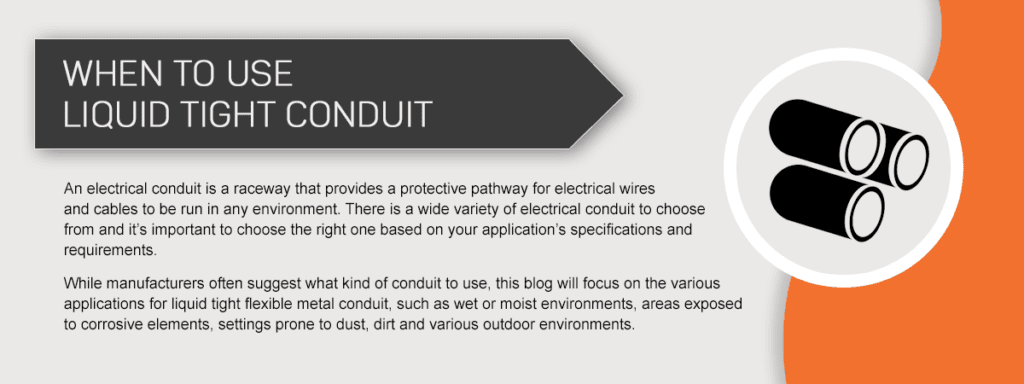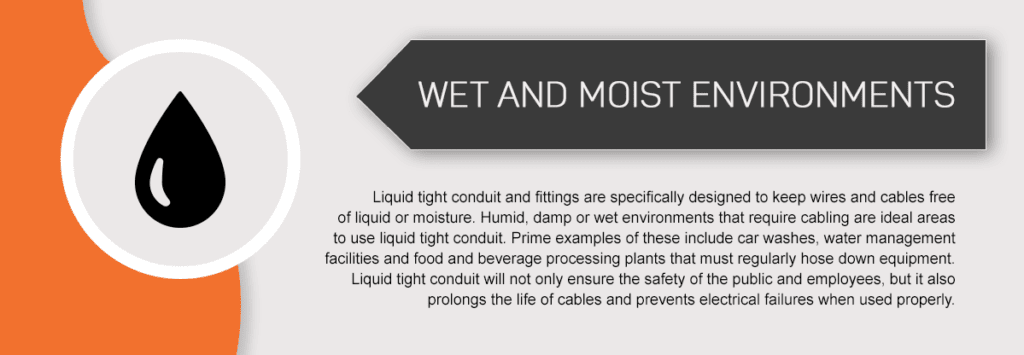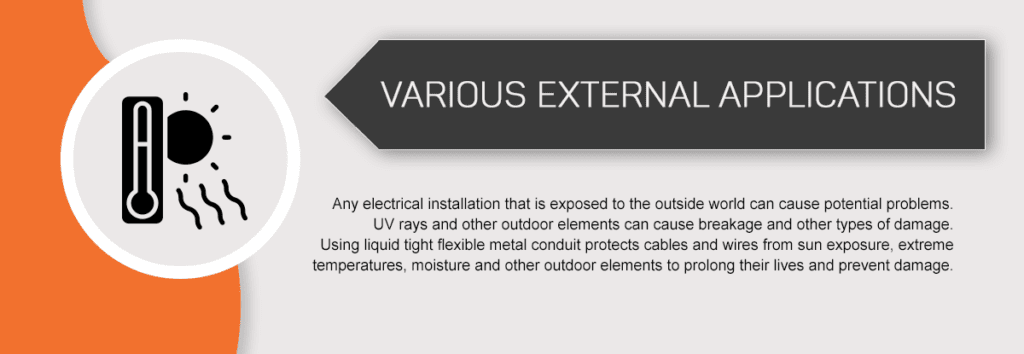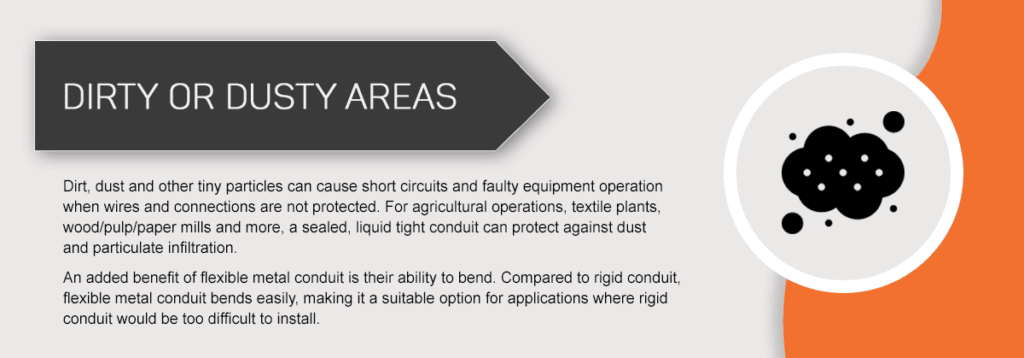When to Use Liquid-Tight Conduit
An electrical conduit is a raceway that provides a protective pathway for electrical wires and cables to be run in any environment. There is a wide variety of electrical conduit to choose from and it’s important to choose the right one based on your application’s specifications and requirements.
While manufacturers often suggest what kind of conduit to use, this blog will focus on the various applications for liquid tight flexible metal conduit, such as wet or moist environments, areas exposed to corrosive elements, settings prone to dust, dirt and various outdoor environments.
Wet and Moist Environments
Liquid tight conduit and fittings are specifically designed to keep wires and cables free of liquid or moisture. Humid, damp or wet environments that require cabling are ideal areas to use liquid tight conduit. Prime examples of these include car washes, water management facilities and food and beverage processing plants that must regularly hose down equipment. Liquid tight conduit will not only ensure the safety of the public and employees, but it also prolongs the life of cables and prevents electrical failures when used properly.
When Cables May Be Exposed to Corrosive Elements
Liquid tight conduit is also an optimal choice for environments that are often exposed to corrosive elements. This type of conduit is not only capable of keeping out moisture, but it is also effective at sealing out harmful substances that can deteriorate wires and cables. This is highly beneficial for applications such as HVAC units, chemical facilities and other areas that are prone to corrosive substances.
Various External Applications
Any electrical installation that is exposed to the outside world can cause potential problems. UV rays and other outdoor elements can cause breakage and other types of damage. Using liquid tight flexible metal conduit protects cables and wires from sun exposure, extreme temperatures, moisture and other outdoor elements to prolong their lives and prevent damage.
Dirty or Dusty Areas
Dirt, dust and other tiny particles can cause short circuits and faulty equipment operation when wires and connections are not protected. For agricultural operations, textile plants, wood/pulp/paper mills and more, a sealed, liquid tight conduit can protect against dust and particulate infiltration.
An added benefit of flexible metal conduit is their ability to bend. Compared to rigid conduit, flexible metal conduit bends easily, making it a suitable option for applications where rigid conduit would be too difficult to install.
Liquid Tight Flexible Metal Conduit from Anamet Electrical
Flexible, liquid tight conduit is not only flexible by design, but it is also flexible in its uses. Protecting wires from liquids, corrosive elements, dust and physical damage are all advantages offered by a liquid tight conduit. For over 100 years, Anamet Electrical, Inc has been a preferred provider of flexible liquid tight electrical wiring conduit for a wide range of industries, including power distribution, construction, OEMs, government, mass transit, utility, petrochemical, food processing and chemical processing. We are dedicated to providing superior service and high-quality products.
For more information about liquid tight flexible metal conduit and fittings, or to get started on your next large-scale electrical installation, contact us or request information today.







2 Comments
Patrick Donnelly
What causes discoloration of PVC Jacket and will that discoloration effect product.
Jonathan Middleton
Not all discoloration is due to sun exposure.
However, customers needed a conduit proven to be more resistant to sun exposure, so we developed Type UVUA conduit.
Please see our new document about UV resistant conduit. https://www.anacondasealtite.com/wp-content/uploads/Product-SUN-UV-RES-2015.pdf
UV exposure can bleach, burn or degrade some PVC compounds.
Exposure to corrosive chemicals is not covered in this document. Please see other sources for chemical corrosion of PVC jackets.